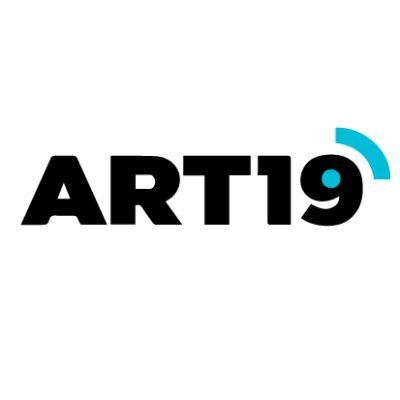Mock sample for your project: EtMDB REST API v1
Integrate with "EtMDB REST API v1" from etmdb.com in no time with Mockoon's ready to use mock sample

EtMDB REST API v1
etmdb.com
Version: 1.0.0
Integrate third-party APIs faster by using "EtMDB REST API v1" ready-to-use mock sample. Mocking this API will allow you to start working in no time. No more accounts to create, API keys to provision, accesses to configure, unplanned downtime, just work.
Improve your integration tests by mocking third-party APIs and cover more edge cases: slow response time, random failures, etc.
Description
The Ethiopian Movie Database
Other APIs in the same category

Cloud Dataproc API
Manages Hadoop-based clusters and jobs on Google Cloud Platform.
Cloud IDS API
Cloud IDS (Cloud Intrusion Detection System) detects malware, spyware, command-and-control attacks, and other network-based threats. Its security efficacy is industry leading, built with Palo Alto Networks technologies. When you use this product, your organization name and consumption levels will be shared with Palo Alto Networks.
Campaign Manager 360 API
Build applications to efficiently manage large or complex trafficking, reporting, and attribution workflows for Campaign Manager 360.

BigQuery Reservation API
A service to modify your BigQuery flat-rate reservations.
Dialogflow API
Builds conversational interfaces (for example, chatbots, and voice-powered apps and devices).

ART19 Content API Documentation
art19.com
The ART19 Content API conforms to the JSON:API specification.
API requests MUST use the HTTP Accept header:
Accept: application/vnd.api+json
API requests MUST be authenticated using the HTTP Authorization header:
Authorization: Token token="your-token", credential="your-credential"
General Notes
Some query parameters use unencoded [ and ] characters simply for readability. Defaults, examples, and
possible values are additionally rendered in double quotes for readability. In practice, query parameters should
not have quotes around the values (e.g., foo=bar is valid, not foo="bar"), and both query parameter keys
and values must be percent-encoded, per the requirements in RFC 3986 § 3.4.
Rate Limiting
In order to provide a fair distribution of available resources, all API calls are subject to rate limits.
If you exceed the number of API calls per minute granted to your credential, a 429 Too Many Requests
error response will be returned.
In that case, a Retry-After header MAY be included in the response, describing the number of seconds
after which a request can be retried.
If you run into a high number of 429 errors, please reach out to ART19 Support to adjust your rate limit.
Example
In the following example the request can be retried after waiting for 21 seconds:
HTTP/1.1 429 Too Many Requests
Content-Type: text/html
Retry-After: 21
Pagination
Requests to collection endpoints SHOULD provide pagination parameters.
Some endpoints REQUIRE pagination parameters to be provided.
Whenever pagination is provided, it MUST be valid.
Failing to provide pagination when it is required or providing wrong or incomplete pagination
always results in a 400 Bad Request error response.
The page numbering starts with 1 and the maximum page size (if not otherwise documented
on an endpoint) is 100. Pagination MUST NOT be specified if requesting a list of IDs (using an ids[] parameter).
Providing invalid values for page number or page size, as well as providing only a page number or only a page size,
is considered an error. Pagination is provided like this:
page[number]=1&page[size]=25
Responses conform to the JSON:API specification's pagination section
by including pagination links. Your requested page size will be carried into the pagination links.
Sorting
Requests to collection endpoints usually accept a sort parameter. Please refer to the
JSON:API Specification's sorting section for further details.
Relationship Linking
Currently, resources return all of their relationships, in no particular order, pursuant to how relationships
should be returned according to the JSON:API specification. Consumers of this API
MUST NOT make assumptions about the order of these collections. Even though this data is not currently paginated, consumers MUST support
paginating relationships per the JSON:API specification if this data is important for their application.
API requests MUST use the HTTP Accept header:
Accept: application/vnd.api+json
API requests MUST be authenticated using the HTTP Authorization header:
Authorization: Token token="your-token", credential="your-credential"
General Notes
Some query parameters use unencoded [ and ] characters simply for readability. Defaults, examples, and
possible values are additionally rendered in double quotes for readability. In practice, query parameters should
not have quotes around the values (e.g., foo=bar is valid, not foo="bar"), and both query parameter keys
and values must be percent-encoded, per the requirements in RFC 3986 § 3.4.
Rate Limiting
In order to provide a fair distribution of available resources, all API calls are subject to rate limits.
If you exceed the number of API calls per minute granted to your credential, a 429 Too Many Requests
error response will be returned.
In that case, a Retry-After header MAY be included in the response, describing the number of seconds
after which a request can be retried.
If you run into a high number of 429 errors, please reach out to ART19 Support to adjust your rate limit.
Example
In the following example the request can be retried after waiting for 21 seconds:
HTTP/1.1 429 Too Many Requests
Content-Type: text/html
Retry-After: 21
Pagination
Requests to collection endpoints SHOULD provide pagination parameters.
Some endpoints REQUIRE pagination parameters to be provided.
Whenever pagination is provided, it MUST be valid.
Failing to provide pagination when it is required or providing wrong or incomplete pagination
always results in a 400 Bad Request error response.
The page numbering starts with 1 and the maximum page size (if not otherwise documented
on an endpoint) is 100. Pagination MUST NOT be specified if requesting a list of IDs (using an ids[] parameter).
Providing invalid values for page number or page size, as well as providing only a page number or only a page size,
is considered an error. Pagination is provided like this:
page[number]=1&page[size]=25
Responses conform to the JSON:API specification's pagination section
by including pagination links. Your requested page size will be carried into the pagination links.
Sorting
Requests to collection endpoints usually accept a sort parameter. Please refer to the
JSON:API Specification's sorting section for further details.
Relationship Linking
Currently, resources return all of their relationships, in no particular order, pursuant to how relationships
should be returned according to the JSON:API specification. Consumers of this API
MUST NOT make assumptions about the order of these collections. Even though this data is not currently paginated, consumers MUST support
paginating relationships per the JSON:API specification if this data is important for their application.
Google Analytics Admin API

Firebase Hosting API
The Firebase Hosting REST API enables programmatic and customizable management and deployments to your Firebase-hosted sites. Use this REST API to create and manage channels and sites as well as to deploy new or updated hosting configurations and content files.
Cloud Deployment Manager V2 API
The Google Cloud Deployment Manager v2 API provides services for configuring, deploying, and viewing Google Cloud services and APIs via templates which specify deployments of Cloud resources.
Local Services API

Cloud Life Sciences API
Cloud Life Sciences is a suite of services and tools for managing, processing, and transforming life sciences data.

Google Play Game Services Publishing API
The Google Play Game Services Publishing API allows developers to configure their games in Game Services.